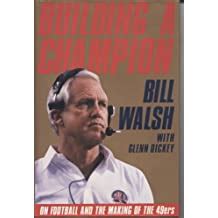A Quote by Nora Ephron
You do get to a certain point in life where you have to realistically, I think, understand that the days are getting shorter, and you can't put things off thinking you'll get to them someday. If you really want to do them, you better do them. There are simply too many people getting sick, and sooner or later you will.
Related Quotes
You do get to a certain point in life where you have to realistically, I think, understand that the days are getting shorter, and you can't put things off thinking you'll get to them someday. If you really want to do them, you better do them. There are simply too many people getting sick, and sooner or later you will. So I'm very much a believer in knowing what it is that you love doing so you can do a great deal of it.
What is "this drive"? It's the tendency to not simply accept things as they are but to want to think about them, to understand them. To not be content to simply feel sad but to ask what sadness means. To not just get a bus pass but to think about the economic reasons getting a bus pass makes sense. I call this tendency the intellectual.
People thrive on positive reinforcement. They can take only a certain amount of criticism and you may lose them altogether if you criticize them in a personal way... you can make a point without being personal. Don't insult or belittle your people. Instead of getting more out of them you will get less
I want to get out of the way of the actors. I want to get out of their eye lines. I want to them to stop thinking they're making a movie. I want them to just go and live. It's like you take these great actors and put them in an aquarium of life, and just watch them swim. That's what makes editing tough because you get all these beautiful, unplanned moments.
We face up to awful things because we can't go around them, or forget them. The sooner you get it over with, the sooner you say 'Yes, it happened, and there's nothing I can do about it,' the sooner you can get on with your own life. You've got children to bring up. So you've got to get over it. What we have to get over, somehow we do. Even the worst things.
The best messages in any given negotiation are really implied indirectly, come to the other person based on thinking that you're getting them to do - getting them to get some really solid thought behind their answers. And so a great thing to send someone in an email is, 'Have you given up on this project?'
One of the things I want ... all the kids here to remember, is that these [Major League Soccer] stars were not born superstar athletes ... Many of them started out just like many of you-playing on a team at school, or just kicking a ball around on the playground with their friends. But they stuck with it. And I tell this to my girls all the time. I mean, you get to the point when ... things you enjoy ... start getting hard-that's when you know you're getting good, and you have to stick through it.
We know that if you have $20 million, it's better to buy a van Gough print than it is buy an executive jet, from the point of view of the environment. But when you start getting down, it's like the recycling question: What are things we can really afford to do, and how much pleasure do we get out of them? We haven't even started to have that discussion, and it's getting awfully late.
I inherited them, so I got it like that. But I hear you can actually get dimples for a certain price if you really want them. I was getting my nails done once, and this lady asked me, 'Are those real? In my country, they pay a lot of money for those.' And I was like, 'Really?' I think she was from Malaysia.
So many actors get caught up in their technique, and to be honest, I see it really getting in the way. I see them forcing things. I definitely do my best work when I'm free of that. But I think as an actor, I work really hard in preparing the roles. I spend like 90 percent of my waking moments walking around thinking: "What does this character do? What is his relationship with so-and-so?" Always, really. Too much!
When people are too present, too familiar or too in our face, something happens to us psychologically. We begin to tune them out, we begin to get sick of them, we begin to know them so well and become so familiar with who they are that we loose a bit of respect for them. You pass a certain threshold with the fact that you're too present in their lives, too much in their face and once that threshold is passed you're never going to repair it they have lost a certain respect for you.


































